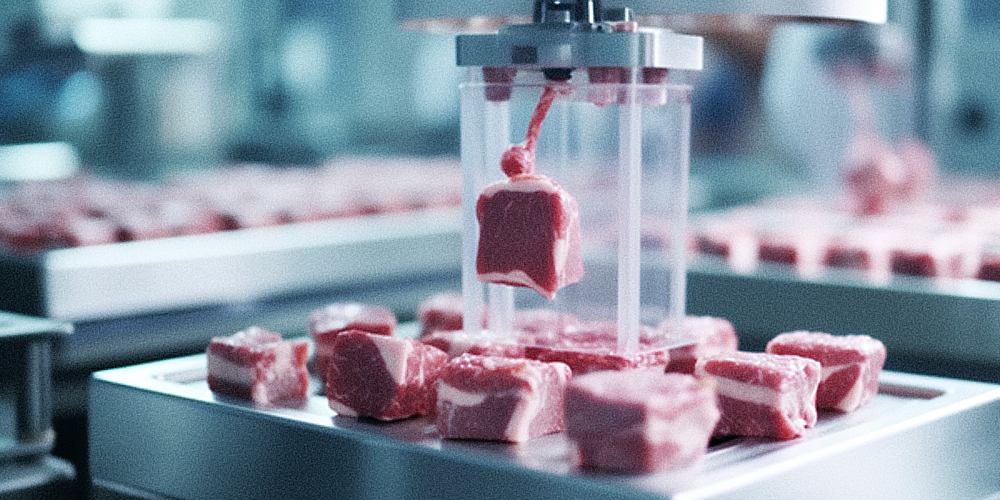(Natural News)—The fake meat industry is now demanding public subsidies to prop itself up, given that customers have spoken with their wallets and said “no” to lab-grown meat.
Data from AgFunderNews cited by the National Pulse reveals that the industry is in dire straits due to dwindling money. Funding for the lab-grown meat sector peaked at $989 million in 2021 but dipped slightly to $807 million in 2022. This dropped by almost 80 percent to just a mere $177 million last year.
“Industry experts claim they need substantial government assistance to survive, with various sectors within agrifood tech seeing a steep decline in investments since early 2022 and private capital for [lab-grown] meat almost vanishing,” the Pulse pointed out. “The decline in funding has prompted many startups to reduce staff, consolidate operations or, in some cases, cease operations altogether.”
Robert Jones, vice president for global public affairs at Dutch startup Mosa Meat, highlighted this issue during the Future Food-Tech Summit in late September. He told participants: “There’s a valley of death we’re not going to cross as an industry without a massive infusion of public investment.”
Andrew Ive, founder and managing general partner at venture capital (VC) firm Big Idea Ventures, echoed Jones’ sentiments. He emphasized that VC money won’t be funding capital expenses for large-scale commercial facilities for fake meat production.
“I think it’s going to take [a country] like the Netherlands or the [United Arab Emirates],” he told AgFunderNews, stressing the immense capital needed. “Maybe Saudi Arabia. It could be … Japan.”
Ive continued: “For me, what makes sense is [the mix of] cultivated with traditional meat – a bit like adding ethanol to gasoline for cars. So I think the way this will ultimately be rolled out in the marketplace will be where 20 percent of the meat content of a dumpling in China, for example, will end up being cultivated meat as opposed to traditional meat.”
Customers have decided: Fake meat is a NO for them
According to the Pulse, the economic case for lab-grown meat is “deteriorating rapidly.” In the same manner, the environmental and health cases for it are also on a decline.
Recent studies have suggested that fake meat is far from being a green alternative to the traditional livestock farming it ostensibly seeks to replace. One such paper by scientists from the University of California, Davis found that lab-grown meat produces up to 25 times more carbon dioxide (CO2) when scaled up to the current supply in the market.
According to the paper, the environmental impact of fake meat “is likely to be orders of magnitude higher than median beef production.” The increased CO2 levels would be necessary for the purification processes that supply nutrients to cultured cells. The study defines this process as “the removal of cells from an animal or plant and their subsequent growth in a favorable artificial environment.” (Related: CLIMATE FAIL: Study finds lab-grown meat generates up to 25 TIMES MORE CO2 than conventional beef production.)
“The use of refinement methods contributes significantly to the economic and environmental costs associated with pharmaceutical products since they are both energy and resource intensive,” the study authors wrote.
Aside from this, concerns about fake meat being a product of “immortalized cell lines” that replicate in perpetuity – cancer, in other words. A February 2023 op-ed in the Pulse by the Raw Egg Nationalist, which cited a story from Bloomberg, warned of the dangers of eating such edible cancer cells.
“The problem is that the materials used to make the product – ‘immortalized cell lines’ – replicate forever, just like cancer. Which means, in effect, that they are cancer. Although these cell lines are widely used in scientific research, they’ve never been used to produce food before.”
Head over to FakeMeat.news for more stories like this. Watch Jefferey Jaxen and Del Bigtree discussing the free fall of the fake meat industry.
This video is from the HighWire with Del Bigtree channel on Brighteon.com.
More related stories:
- What they don’t want you to know about lab-grown meat.
- Fake meat firms collapsing due to lower sales, anti-woke backlash.
- Study: Vegan FAKE MEAT products linked to cardiovascular issues.
- Immortalized cell lines used in lab-grown meats can cause CANCER.
- Fake meat companies are failing as consumers abandon processed plant-based alternatives to real meat.
Sources include:



